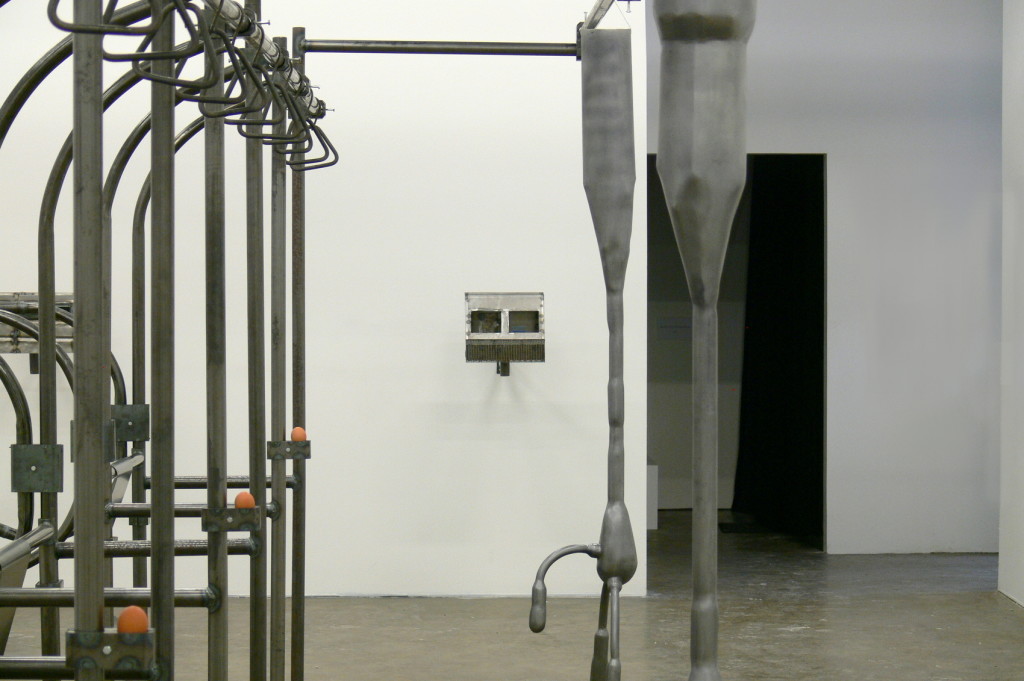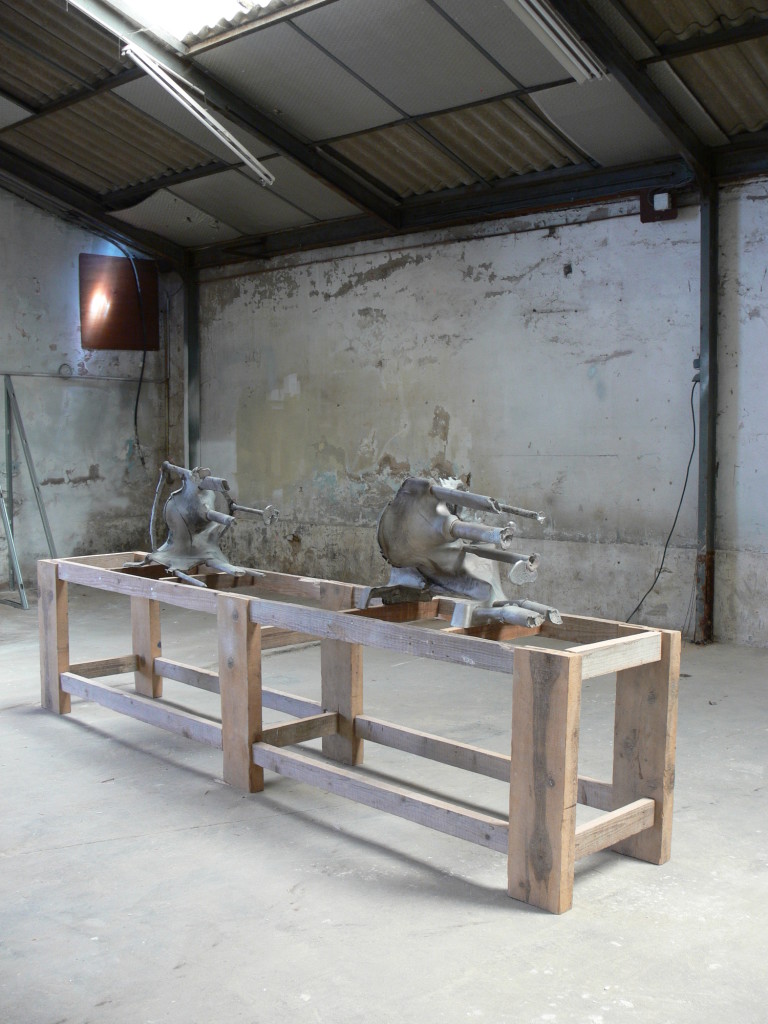Nessi
Studio:
1 place de Lorette
Fr-13002 Marseille
BIOGRAPHY
Antoine Nessi graduated from Ecole des Beaux-Arts de Paris in 2011. His work focuses on the confrontation of art and industry. A meeting that manifests itself through the machine whose poetic and political potential he explores.
Antoine Nessi has participated in several exhibition in France and abroad, such as “The Promise of Moving Things”, Crédac (Ivry-sur-Seine, 2014) ; Pipe Factory (Glasgow, 2016); “Le travailleur temporaire et la machine enchantée”, L’oeil du poisson – art center (Québec, 2018); “De l’ombre à la lumière”, Château de Servières (Marseille, 2019); “Paon Paon kiki”, Le magasin (Marseille, 2019) and “ A Spoonful of Sugar”, Galerie Jeune Création (Romainville, 2020).
—
Born in 1985 in Ivry-sur-Seine, France.
Whether he works in cast aluminium, in lengths of foam or in moulded resin, Antoine Nessi makes in the furniture and real estate of dystopia. As a rebellious anthropologist, he borrows the forms of the real to reinvent them in his own narrative regime. His sculptures resemble those which we might find on a production line in a factory, at the moment when several pieces put together adjust themselves, in a moment of brilliance, to a world unconscious of the worker. In different series, Antoine Nessi moulds work tools to pull out rough sketches, masks or insane creatures, detourning both use value and a force of fantastical contestation. Whether one believes in the power of art to change life or not, the way in which one makes art remains an inevitably political object. Nessi, who willingly carves his path on the edges of industry, understands his role as artist like being the person who explodes the standard notion of productivity. But before all of that he attempts to attach himself to a common desire founded in our way of life, that of apathetic diversion and the ‘user friendly’ surveillance conditioning our economy. He also makes himself the kafkaesque shadow who, depending on the scale of his pieces, puts the spectator here in the position of master, and there of slave. The history of modern art will have eventually spoken the forms of ordinary oppression. The works of Antoine Nessi surprise us, residing somewhere between agricultural animal storage and the subway train, between the gym and the penitentiary.
Marilou Thiébault
 Passage
PassageAntoine Nessi, Passage, steel, eggs, exhibition view, L’Oeil du poisson, Quebec, 2018.
 Nobodybuilder
NobodybuilderAntoine Nessi, Nobodybuilder, polystyrene, steel, primer, painting, Bruit de fond, Marseille, 2017
 Systèmes solitaires
Systèmes solitairesExhibition view Systèmes solitaires, duo with Paul Paillet, Ressources urbaines, Geneva, 2017.
 Unknown organs
Unknown organsAntoine Nessi, Unknown organs, galvanized steel, stainless steel, aluminium, brass, exhibition The Promise of moving things (cur. Chris Sharp), Le Crédac, Ivry-sur-Seine, 2014.
 Machines fantômes 1 et 2
Machines fantômes 1 et 2Antoine Nessi, Machines fantômes 1 et 2, cast aluminium, wood, 2013.



